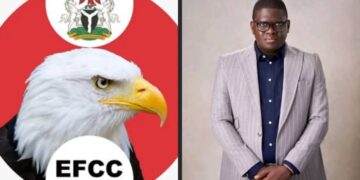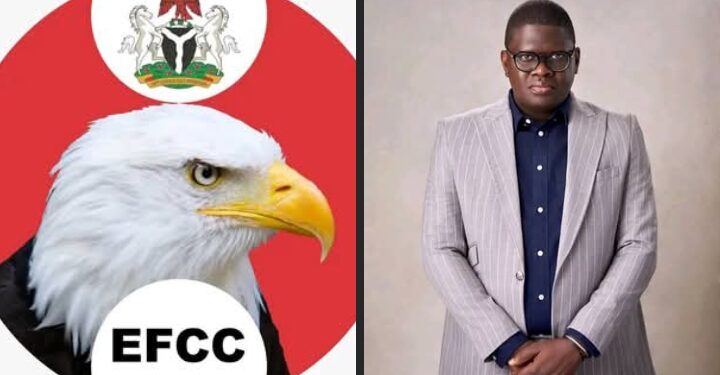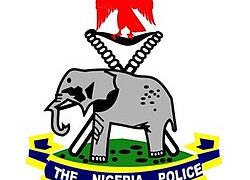The Economic and Financial Crimes Commission (EFCC) has raised concerns after a motivational speaker, Stephen Akintayo, demanded $18,000—almost N30 million—for a one-on-one mentorship programme.
Dele Oyewale, spokesperson for the EFCC, cautioned Nigerians against engaging in financial ventures that could land them in trouble.
Speaking on the matter, he said, “There is a trace of a Ponzi scheme in that arrangement. People need to be careful about where they put their money.”
Checks revealed that the programme flyer lacked any account details, instead instructing interested individuals to send private messages. The development triggered widespread debates on social media platforms.
On Wednesday, April 23, 2025, Akintayo had announced via Facebook that he was offering 10 slots for the mentorship programme, asking for an initial payment of N2.5 million, with the balance payable over 12 months.
The investment coach promised participants access to a billionaire coaching community, in addition to 45 of his books.
Oyewale further criticised the transaction being priced in dollars, describing it as a violation of the law. “It is not proper to charge in dollars. One of the campaigns we are doing is against the dollarisation of our economy. For anyone to offer a mentorship programme in dollars is a violation of the laws of the land,” he stressed.
Nigerians reacted sharply to the announcement.
A Facebook user, Okey Mbah, argued that such an amount rendered mentorship unnecessary for anyone who could afford it. He wrote, “He/she only needs to focus and double down on what produced that income, while reading books and going for events. Do you know how many plots of land $18k can get in different parts of Nigeria or how much yield in FG Treasury Bonds that money can produce in a year or six months?”
He further described the offer as “audacious,” adding that most of the knowledge Akintayo promised was available in books for a fraction of the cost.
Another user, Francis Njemanze, lamented the increasing monetisation of mentorships by Akintayo, recounting, “The problem l have with Dr Stephen is always on monetisation. Last time he offered me a sponsorship ticket to a conference for N300k and yet called it sponsorship. And now asking for $18k for mentorship, i.e., an equivalent of almost N30m.”
Njemanze asserted that “the young people you claim to always want to help ‘succeed’ cannot afford this money, and so do many startups.”
Similarly, human rights advocate Charles Ogbu expressed skepticism about Akintayo’s claims. “You have shown zero record of anyone who has ever become a billionaire just by passing through your mentorship,” he said.
Nonetheless, not all reactions were negative.
A supporter, Bukat Grills, defended Akintayo, saying, “I have seen people who have gone through your mentorship and they are doing very well in their respective fields.”
Another, Udeme Udeme, added, “No amount is too much for knowledge and access.”
A user, Acha Emmanuel Adiele, also expressed interest in the programme and requested to make a payment.
Economist and financial expert, Dr. Aliyu Ilias, criticised the exorbitant fee, warning of potential economic consequences. He said, “Using over N30 million for mentorship is outrageous, and for economic reasons it will make people embark on an insincere source of looking for money.”
Meanwhile, Victoria, one of the resource persons associated with the programme, defended it, stating, “Dr Stephen has been generous with his knowledge; he doesn’t hide anything. There are free ones and paid versions. Just as they say, ‘you don’t pay attention until you pay sometimes’.”
Efforts to get Akintayo’s reaction were unsuccessful. Calls to three phone numbers listed on the programme flier went unanswered, and questions sent to two other contacts were not replied to. Instead, the reporter was referred to different individuals who also refused to comment as of press time.

























